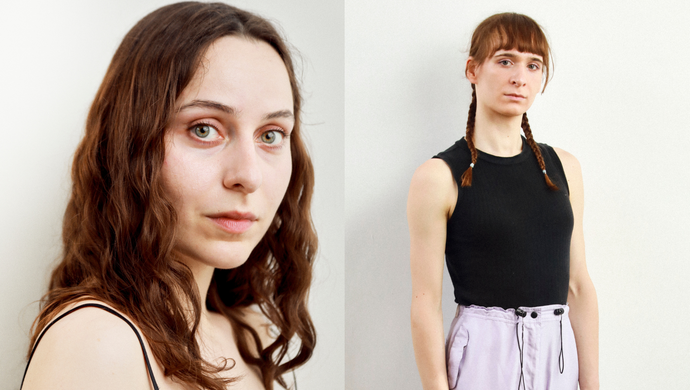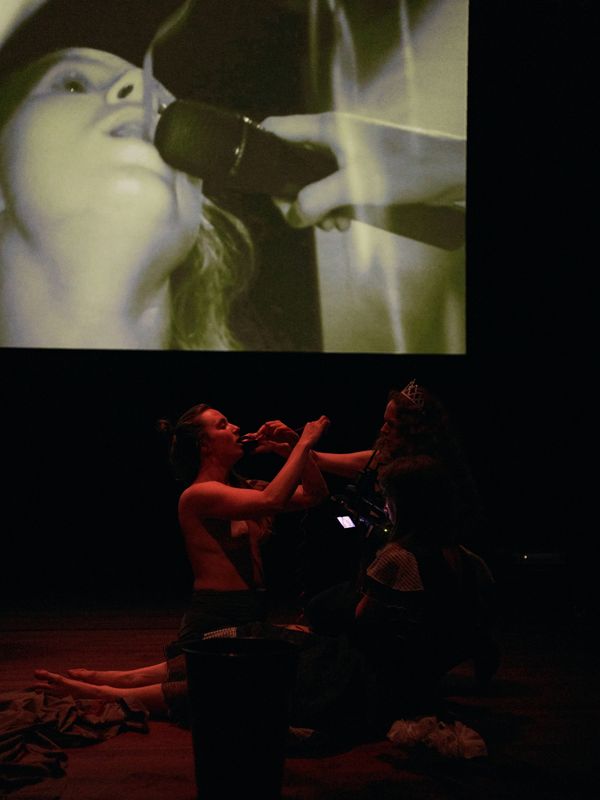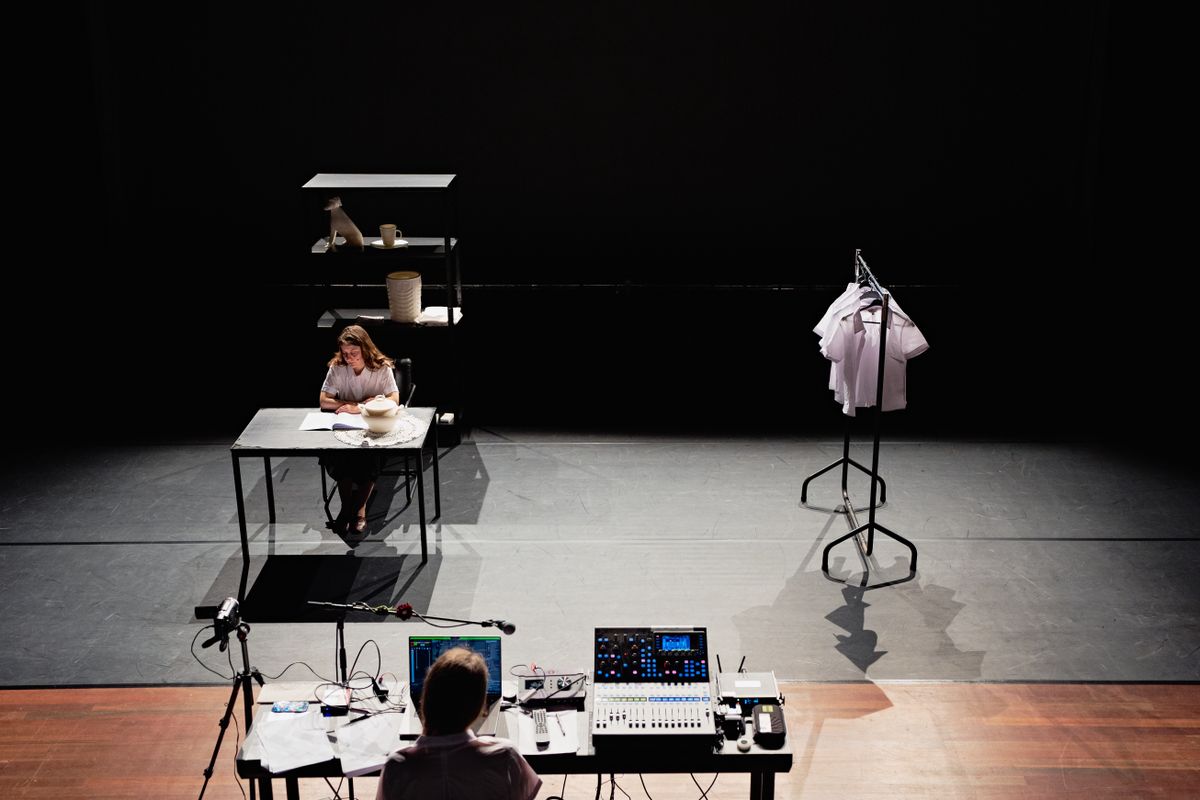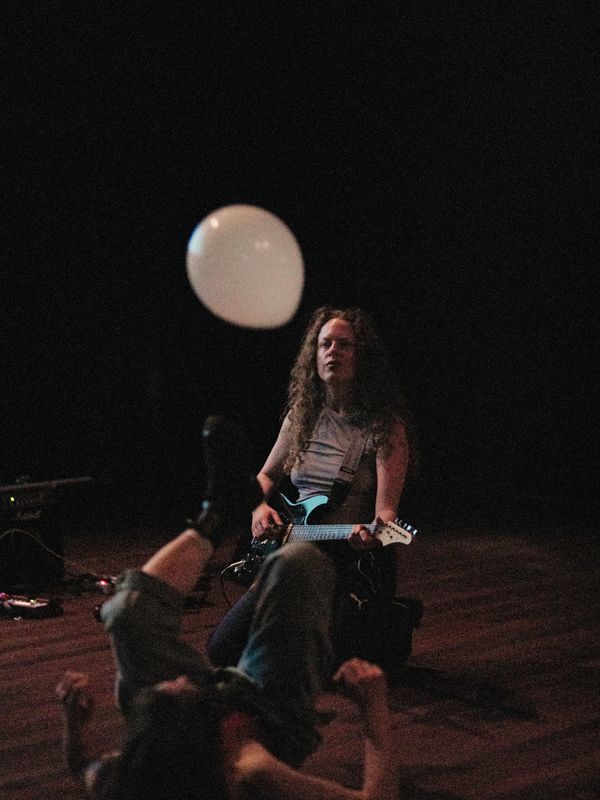Marzanna's Revolution - Kaya Korabiowska-Dean / Frascati Producties
In Marzanna’s Revolution, Kaya Korabiowska-Dean explores a near future in which all men have suddenly disappeared, leaving only women and queer people behind. Through movement, text, and sound, she delves into an emotional landscape where celebration and mourning, freedom and loss, birth and death intertwine. What does it mean to be a woman in this world?
The work is inspired by cyclical metamorphoses, such as the myth of Marzanna, the Slavic goddess of death and rebirth who is symbolically burned and drowned at the arrival of spring.
With this project, Kaya continues her exploration of female identity and transformation, this time focusing on a feminine imagination of time and how it can be felt.
About Kaya Korabiowska-Dean
Kaya Korabiowska-Dean (The Netherlands) is a theatre maker with Polish-British roots. Kaya works at the intersection of contemporary theatre and performance. In 2025, she graduated from the Directing programme at the Academy of Theatre and Dance, where she created a series of performances exploring female identity and transformation.
Kaya is fascinated by ‘feminist fantasies’ and ‘psychological horror’. Her work constructs worlds in which a sense of estrangement is central. She works physically and visually, often incorporating text and regularly drawing from autobiographical material.
In her collaborations, she values the individuality of each performer and the personal narrative that resonates through their presence.
she was born for happiness - Veronika Abdul-Visocka / Frascati Producties
She told herself: “I was born for happiness…” and blew out the candles on the cake
her grandmother told her: “smile, it will extend your life”
her mother told her: ” optimists tend to live longer”
but it didn’t helped
one day she became a pessimist
pessimism helped her reveal that hope can be violent,
that the promise of happiness can be a form of control
and optimism a form of submission
Imagine a negative performance. A negative space.
In visual arts, the central object of a composition is called positive space. The area around the central, dominant, narrative-creating object is the negative space.
The negative space carries knowledge. It knows the invisible violence of positivity. It knows about self-harm. Self-harm as an attempt to make violence visible, an attempt to reclaim agency. A cigarette burn saying: this is happening. A cut saying: this hurts.
In she was born for happiness, Veronika Abdul-Visocka explores through text, sound and moving images, the negative space not as a background, but as a ground. And its tenderness within that cannot survive the spotlight.
About Veronika Abdul-Visocka
Veronika Abdul-Visocka (Latvia) is a theatre maker, writer and performer. In 2025 she graduated from the master’s programme at DAS Theatre.
Her work emerges from a power-critical, hybrid perspective. Shaped by the multiple languages, religions and political systems she was raised within, Veronika explores fluidity, multiversality and the capacity for transformation.
In her creations, she weaves personal narratives and fiction together with elements of critical theory, literature and poetry. Veronika collaborates with artists from various disciplines to bring a wide range of voices and media into the theatre. Through this multiplicity, she seeks ways to speak about invisible violence and its impact on personal lives and social relationships.
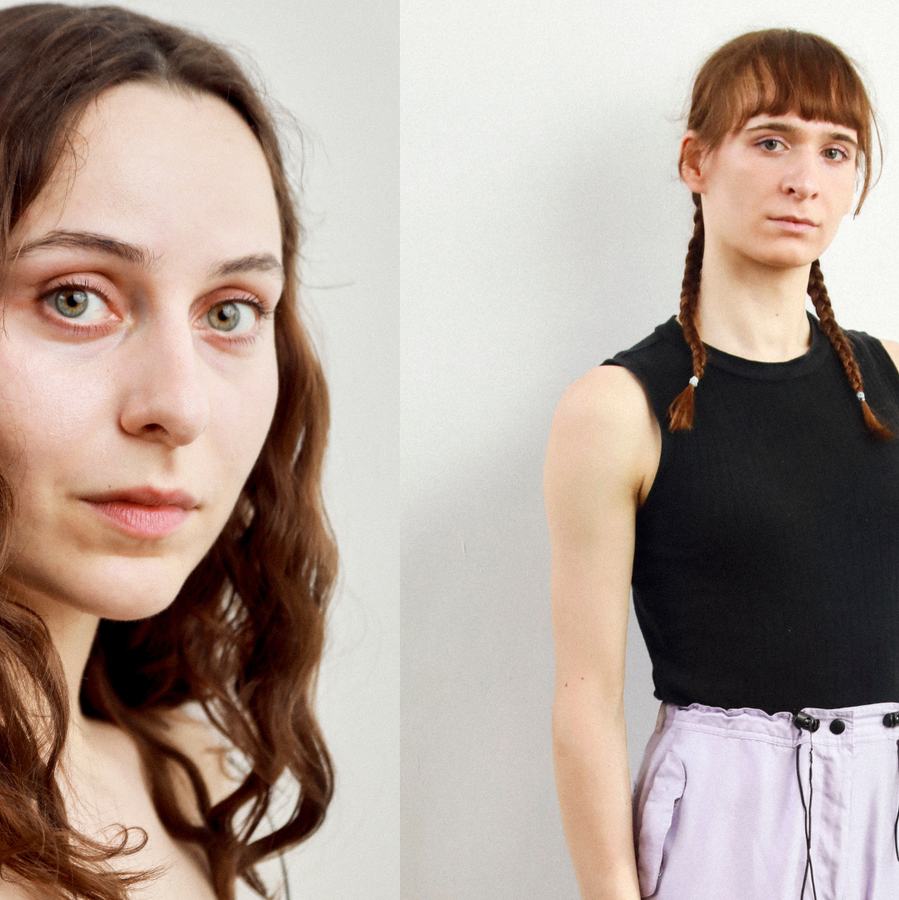
![]()
![]()
![]()



